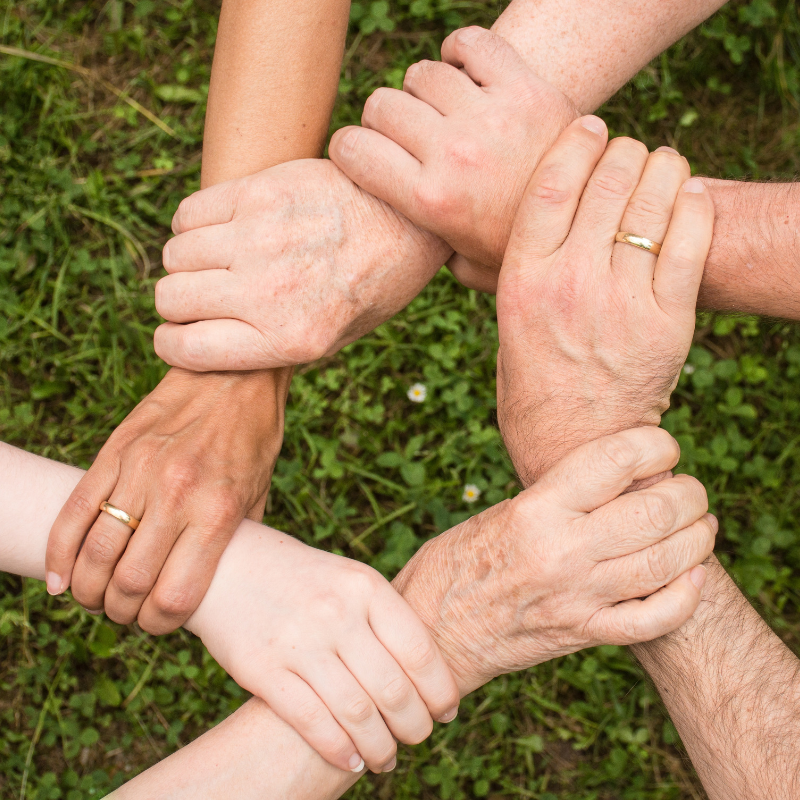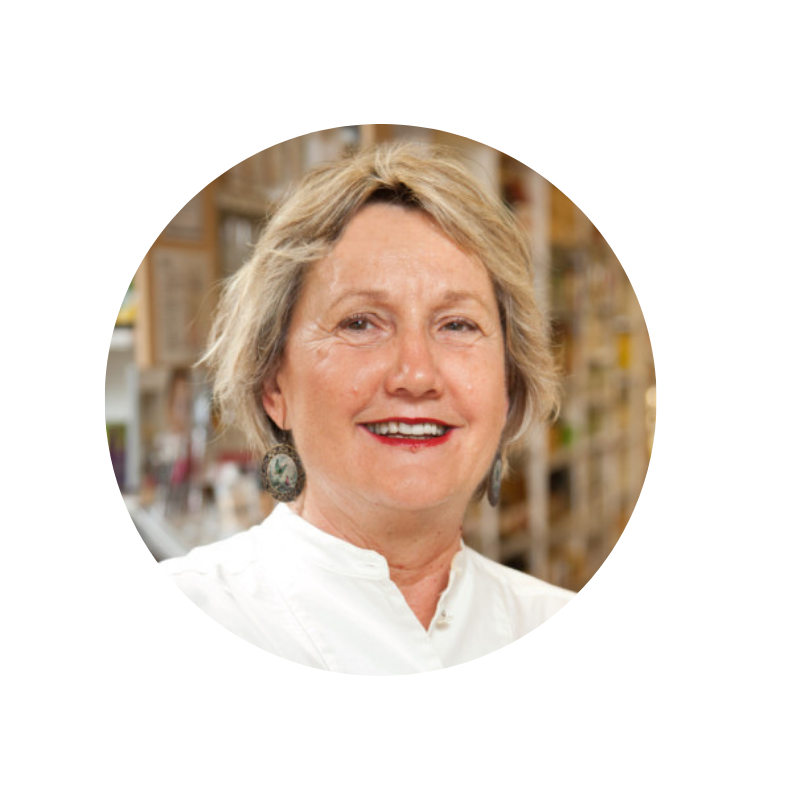Written by Marilyn Lemaire | Naturopath & Master Herbalist
Aging is happening to all of us. My peer group, the “Baby Boomers” are reaching the time of their lives when they are the new “Senior’s”. The Health Care System is afraid of the impact our health will have on the government ‘s health budget. As a personal observation, I do not believe we want to be a cost to the health care system, we would rather be healthy, have quality of life, be free to work or not, be involved with our network of friends, still feel a purpose and know that there are systems in place that are supportive for us as we age.
Successful aging is a contentious term and when we talk about getting older in the best possible way we know it is more than maintaining health. The journey of aging requires resources, understanding the aging process, a supportive community, health action, resilience and I think a sense of humour. As well as the awareness of myself aging, I find observing the process of aging and the needs that come with aging to be complex and at times challenging.
I have been involved in the health industry for over 30 years and one of the most inspiring situations is observing a person take a serious interest in their health and next put in effort and action in order to achieve feeling better and happier. I want to play a role for this group to encourage change towards better health. The saying “it takes a community to raise a child” can also be used for aging as it requires a community of health support, physical support, nutritional support, social support, intellectual stimulation and a network of family and friends to age fruitfully.
There are many layers to the process of aging and there are numerous ways we can influence this process. The aging process is best approached with determination to stay well, if not well – then get better and most of all get involved.
Bowling (1) defined healthy aging as “aging with the absence of illness or disease, maintaining healthy physical and cognitive function and being involved”. This description was found to not align with the experience of older individuals and how they defined healthy aging. The new evidence points that we benefit from the resilience its takes to deal with and overcoming the challenge of illness and disease (2). Research by Cosco (2) found that older individuals reported: there was more to aging than physical health, the attitude an aging individual has is crucial and there was a consensus that when defining successful aging components that are beyond physical health have to be included in the definition.
Cosco surveyed older individuals and they named; social roles, self-awareness, acceptance, perspective, engagement, spirituality, maintenance, quality of life, community, prevention and remediation, independence and adjustment as key issues that defined successful aging. When the definitions were further explored the addition of environment and finances were added to the concerns. An interesting point was that in this research, longevity was identified the “least” frequent of concerns. We could conclude that quality of life is significantly more important than quantity of life.
Theories of Aging
Understanding theories of aging gives us ideas and strategies of how we can make this inevitable experience less challenging. There are many complaints about the process of aging but there are also action plans that can be implemented to age well. It is beneficial to be aware of these theories and reasons why we age and how we age. Quach (3) in summary said that identifying the biomarkers of aging can lead us to understanding, slowing, halting and reversing aging.
To date over 300 hypothesis explaining the aging process have been postulated and with the advancements in cellular and microbiology the number of theories are increasing (4). There are missing pieces to solving the aging process puzzle so at best the theories help guide future experiments that will hopefully provide further research and information on the biology of the aging process (4).
The main theories of aging are:
- Programmed Theory: Jin (5) defines this theory as the turning on and off of specified genes and the end result is the manifestation of senescence (deterioration with age).
- Endocrine Theory: van Heemst (7) writes the endocrine system controls the pace of aging through the control of hormone secretion and production. They propose the decline in the Endocrine system leads to hormone imbalance and decline in homeostasis (the balance of function in our body). This theory is challenged as the adrenals and thyroid which produce hormones essential to life have minimal change during the aging process and also that in aging there are complex adaptive changes in the endocrine system.
- Immunological Theory: Jin (5) states that over time the effectiveness of the immune system is programmed to decline and this increases an individuals vulnerability to infections and diseases which contribute to aging and often is the reason for death in the elderly. Herbal and nutritional advancements have provided a plethora of strategies to support and improve the immune system. Research conducted by Miller (10) has shown conclusively that Echinacea is a strong immune stimulant, was shown to extend life span and that this herb reverses aging effects.
- Replicative Senescence: Faragher (11) describes this theory as the result of the permanent phase of a cell when it is viable but no longer able to divide. This is usually the result of past multiple cell divisions or possibly the loss of telomere length. Telomeres, protectors of DNA strands, are positioned at the ends of a chromosome strand of DNA. Lifestyle factors can improve telomere length as well as increase the pace of telomere shortening. The main lifestyle factors that contribute to the shortening of telomeres are smoking, obesity, sedentary lifestyle and eating an unhealthy diet. The shortening of telomere is associated with increasing the onset of many age-associated problems (13).
- Free Radicals Theory: The theory states that cells suffer oxidative damage at a pace greater than the ability of the antioxidant system’s ability to counteract the damages. Afanas’ev (17) reviewed the research on the free radical theory and confirms that the damage caused by reactive oxygen and reactive nitrogen is responsible for a variety of pathologies and aging. We can cite that following a Mediterranean diet which is high in vegetables, fruits, whole grains, fresh herbs including garlic and healthy fats provides a high amount of antioxidants and low oxidized cholesterol concentration which provides a rebuttal to the Free Radical Theory Mendez (21)
- The Green Theory of Aging: Farragher (11) describes this theory as aging caused by the inability of an organism to detoxify creating an accumulation of toxic metabolic waste including those from reactive oxygen. The viability of an organism is its ability to remove waste, to repair from damages and to be efficient in Phase I and Phase II detoxification (11). There are a number of effective herbs (i.e. Schisandra & Milk Thistle) and numerous nutritional formulations that support the successful detoxification of Phase 1 and Phase II.
- Loss or Gain of DNA Methylation: After a fair amount of reading, I found research papers concluding that there is a definite correlation with DNA methylation and the aging process. I will not try to present a conclusion because it is out of my depth but it appears that the biomarkers for DNA methylation (DNAm) are a more efficient indicator of aging than is chronological age (Ciccarone (18). Levine (19) found they were also reliable predictors of cardiovascular disease. Horvath (12) wrote that the relevance of the DNAm markers were that they were the result of epigenetic change meaning that they were reversible and therefore could be a tool in anti-aging interventions. Recent studies have resulted in a greater awareness of supporting the methylation cycle and the research has resulted in creating supplements that support healthy methylation.
In Summary
Except for the Programmed Theory; the above theories are challenged by eating a whole food diet, having high movement, including daily exercise and having a healthy life style.
In regards to Telomere length, the following has been shown to improve the telomere length: (13)
- A diet with healthy amount of dietary fibre – recommended daily intake should be about 30gr
- Reduction in protein intake and choosing healthy proteins; lean chicken, fish, tofu and pulses
- Low Sugar intake
- Consuming high omega 3 fatty acids foods as found in fish, avocado, seeds and nuts
- Diet high in Antioxidant foods containing Vitamin C, A & E
- Intermittent fasting and calorie restriction
- Exercise is conclusively shown to be one of the most influencing factors to improve telomere length as well as being protective for telomeres and supporting healthy cells.
Quach (3) conducted a study with 4575 participants to establish the link between lifestyle factors and epigenetic age. The overall results confirmed that a lifestyle of eating fish, poultry with fruit and vegetables along with physical activity, higher education and low body mass index showed a slower extrinsic age acceleration. The results of the healthy lifestyle also showed lower incidence of inflammation as well as lower incidence of chronic disease.
Conclusion
The aging process is inevitable and as Holliday (20) states the evolved complex design of humans and animals is not compatible with immortality. It is believed that there are more theories to come on the subject of aging and it is possible that as Holliday says it is complex and multi-causal.
What is to be learnt from these theories is how we can influence the theories and ensure the well being of individuals as they age. It is also crucial as community that we reach out to individuals and be part of the network that is supportive. Quach (3) endorsed, for the benefit of wellbeing, the significance of eating a high plant based diet, moderate alcohol consumption, high physical activity, healthy BMI and pursuit of education.
References available upon request
Marilyn Lemaire is a Clinical Naturopath with over 25 years experience & a masters in Herbal Medicine. Marilyn is passionate about all aspects of herbal medicine & holistic health care but with specific focus on anti-aging & preventing disease.




